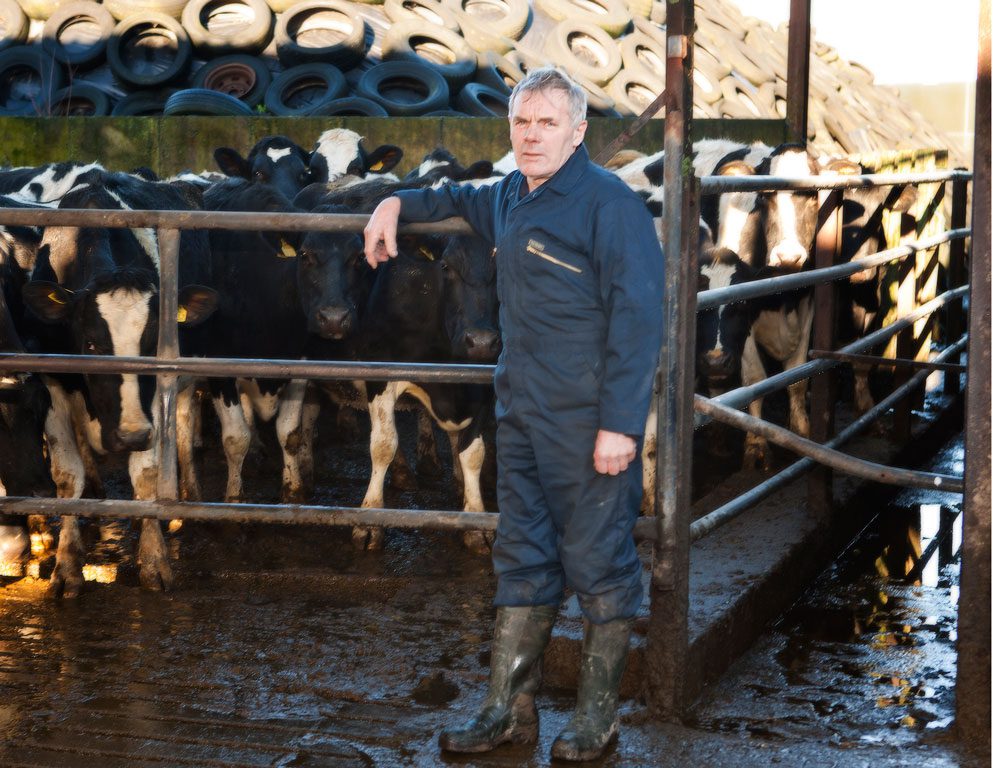The new chair of ICMSA Dairy Committee has called for a stabilizing mechanism to be introduced for the post-quota EU milk market or Irish farmers may be forced in the future to reduce supply.
Gerald Quain said he accepts the decision to abolish EU milk quotas is non-reversible, “but they shouldn’t have got rid of quotas without putting in some sort of stabilizing mechanism, whereby they could pull the handbrake if prices deteriorate.”
Mr Quain, who farms near Charleville in County Limerick, took up the three-year term last month.
“Being a dairy farmer and the vice-chair of the Dairy Committee for a few years beforehand, I firmly believe that dairy farmers need a strong voice and I’m hoping to provide that for them.”
He says what he would like most for the next government to do for the dairy sector is to address the “major problem” of volatility.
“The cycles are getting shorter and you can’t plan with these troughs and highs. That instability makes it quite difficult to progress, because when a farm is looking to develop, [the banks] will need projections going forward, which is very hard to do.”
“We feel the government should lobby the European Commission that a mechanism needs to be put in place to regulate the growth of milk supply, as there is no point in having growth unless you have the market.
“Of the increased production in Europe we’ve had since April 2015, 50% of that has gone into intervention or private storage.”
Quain said farmers who invested money into developing farms in recent years will be hard pushed to survive the present trough.

New chair of ICMSA Dairy Committee, Gerald Quain
Keep Rural Ireland Alive
Quain said some governments have shown since 2008 they can intervene in the free market when it is deemed just, such as with quantitative easing.
Governments, Quain argued, similarly have the power to intervene in the dairy market.
“The government should have come in and eased the [milk price] situation much sooner. They just can’t open the sluice gates and say ‘let the market decide.’ Everybody has to have food to survive: it should be treated in a slightly different fashion to commodities.”
Quain said the difficulty in earning a sufficient living from the land has fuelled the depopulation of rural Ireland.
“It doesn’t make one bit of sense to me. Keep rural Ireland alive. We are not looking to be millionaires, just to make a decent living and they will see we will look after rural Ireland.”
If the ICSMA finds the next government does not act on the milk price, what will then happen?
“If we are not listened to and the price of milk doesn’t improve, then we will be asking why we are producing a product that there isn’t sufficient demand for?”
Quain said it may then be worth Irish dairy farmers to consider collectively reducing production.
“We may need to produce a little less in the short term, to get a bit of stability into the market in the long-term.
“It hasn’t come to that situation yet, but we do have that power. It’s in the national interest to produce and export more milk, but at the same time we should let the processors know why should we be the busy fools?”
Retail Power and the Super-Levy
Mr Quain added that the ICMSA would also like to see the government act over the increasing power retailers exert over the dairy sector, at the expense of farmers.
“Retailers have a massive margin, while our margins are getting smaller and smaller. But we are the providers: the ones who are doing all the slogging. The rest are just moving it along up the line.”
In addition, he said that the term-length of the superlevy deal that Minister Coveney negotiated last year in Brussels may now need to be renegotiated, so that the final two years of the three-year deal could be spread out over four years, thereby reducing the volatility of farm incomes.
